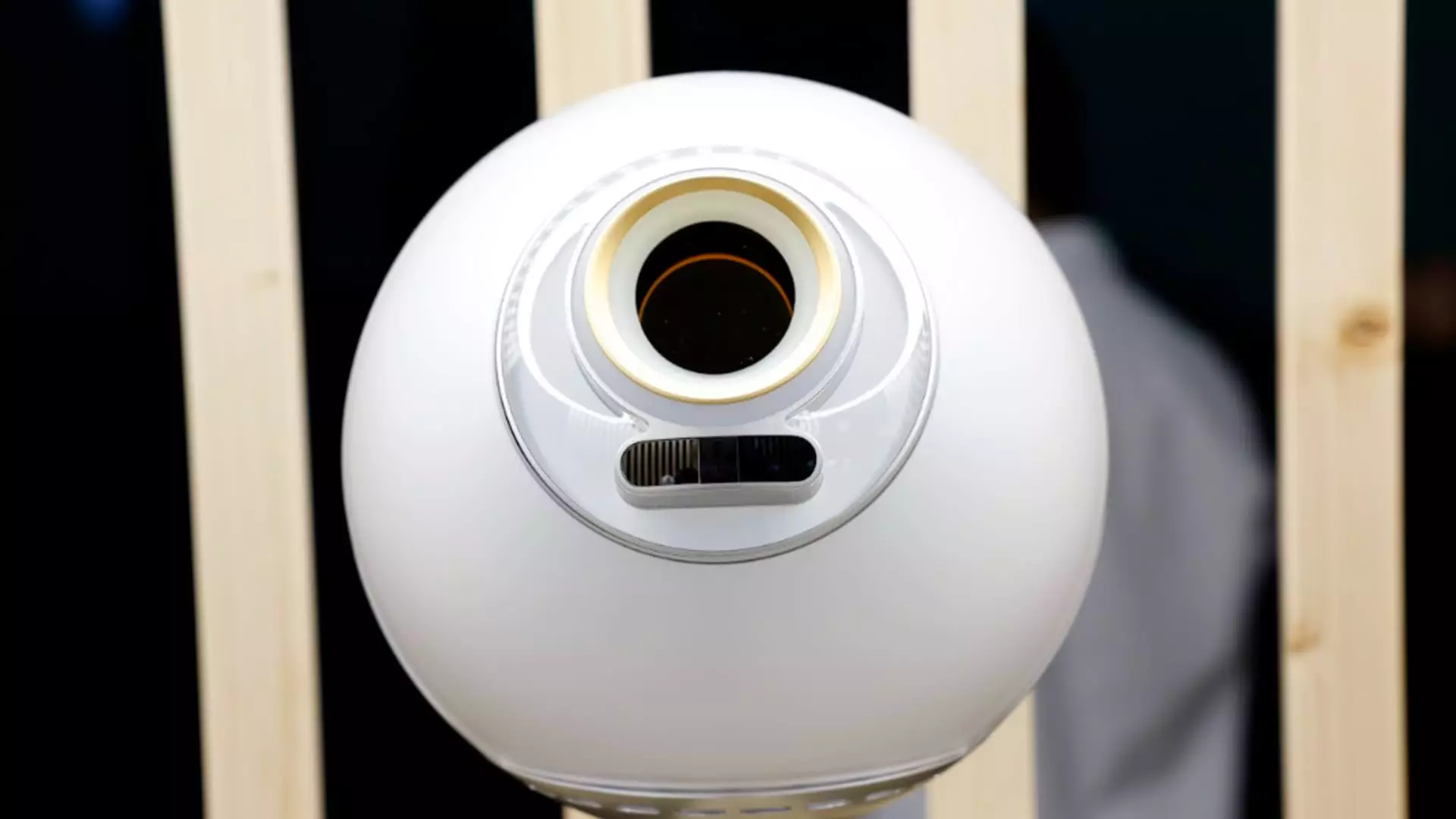In an age where technology intertwines seamlessly with our daily lives, the urgency for secure identity verification systems is more pronounced than ever. The recent launch of the biometric identity verification project, World, co-founded by OpenAI CEO Sam Altman, illustrates this need. Set to debut this week in London, the project leverages a cutting-edge device known as the Orb to scan users’ eyes for the purpose of authenticating their identities. As Britain navigates the complexities of artificial intelligence and digital fraud, World aims to mitigate risks associated with identity theft and the manipulation of AI-generated content, known as deep fakes.
World’s Orb device provides a tangible tool to decipher whether a user is a human or an AI. By capturing intricate details of a person’s face and iris, it generates a unique iris code that constitutes the digital identification for individual users. This code not only grants users access to various platforms like Minecraft, Reddit, and Discord but also rewards them with World’s cryptocurrency, WLD. The project’s ambition extends beyond individual utility, targeting broader applications in both governmental and corporate spheres as a means to combat the escalating threat posed by AI in various sectors including banking and online gaming.
Responding to Growing Demands in a Digital Landscape
The allure of World lies not only in its innovative technology but also in its timely response to urgent security demands. According to Adrian Ludwig, chief architect at Tools for Humanity, the project is experiencing robust interest from enterprises and governments alike. This rising inclination is likely fueled by a global recognition of vulnerabilities that traditional identity verification methods expose, especially in a world grappling with increasing cyber threats.
As World prepares to expand its sphere of influence beyond London to other major cities such as Manchester, Birmingham, and Cardiff, it’s crucial to acknowledge the existing limitations and concerns surrounding user privacy. The initiation of the project, previously branded as “Worldcoin,” has not come without skepticism regarding the implications of biometric data handling. Although assurances regarding encryption and deletion of original data have been provided, the challenges of upholding privacy become complicated in interconnected networks where mass user engagement is expected. Ludwig’s remarks hint at the thoughtfulness in balancing innovation with the protection of user rights: “The idea is no longer just something that’s theoretical. It’s something that’s real and affecting them every single day.”
The Bridging of Physical and Digital Identities
One of the most compelling aspects of World is its prospective role in the broader transition from physical to digital identity systems. Many governments are currently exploring schemes to move away from outdated physical identification cards to more efficient digital alternatives. However, despite the potential benefits, examples from nations like India, with its Aadhaar system, have also exposed significant pitfalls, including security oversights and the exacerbation of social inequities. Ludgwig’s acknowledgment of these complexities emphasizes the necessity for well-structured, informed approaches as we stride into this new era of identity management.
World’s technology also signals an evolution in how identity is perceived and verified. As the boundaries between physical and digital realms blur, the demand for robust, foolproof verification methods will soar. Ludwig notes that current authentication processes, including facial recognition and traditional captcha, may not withstand the advancements made by emerging AI technologies. This highlights a fundamental truth: to keep pace with technological advances, our identity verification systems must also evolve.
Building Trust in a Fragmented Digital Ecosystem
Ultimately, the challenge for World and similar ventures lies in establishing and maintaining user trust. Moving ahead, the importance of engaging meaningfully with regulatory bodies cannot be overstated. Ludwig’s discussions with U.K. regulators underline the critical nature of collaboration in addressing concerns surrounding privacy, security, and systemic risks associated with digital identities. Achieving a secure operational framework will necessitate transparency, responsiveness to feedback, and a commitment to protecting users as foundational principles.
As World embarks on its journey through the complexities of digital identity verification, it mirrors a broader societal evolution. The success of such initiatives depends upon navigating not only technological challenges but also ethical considerations, ensuring that the benefits of such transformative tools are equitably accessible while simultaneously safeguarding individual privacy. As we front the intersection of human and machine, the quest for secure identities stands at the forefront, shaping our digital futures in profound ways.

